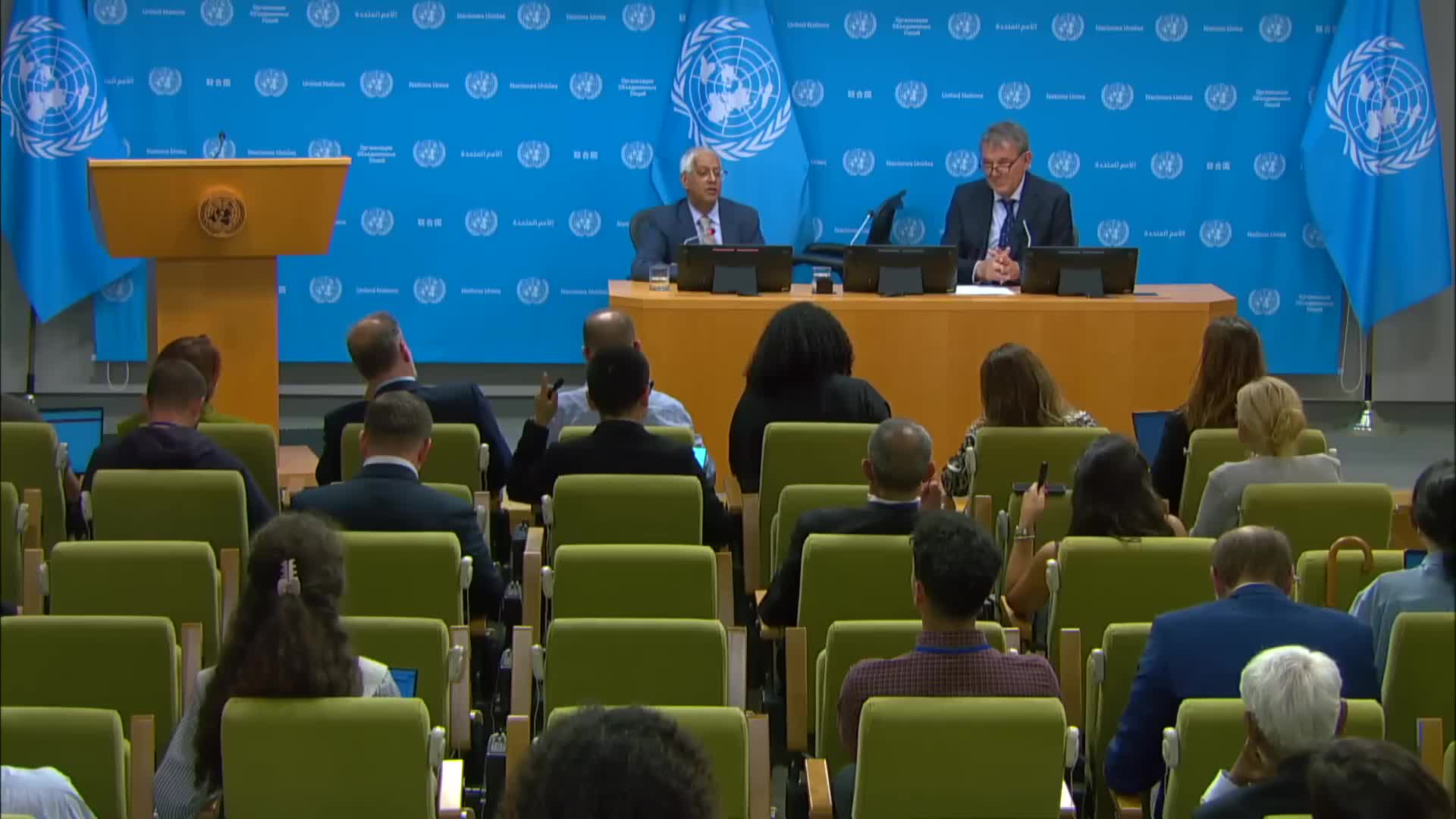UNRWA Official Discusses Israel's Military Operations Impact on West Bank Camps
September 28, 2025 | Israel-Palestine Crisis, United Nations, Federal
This article was created by AI summarizing key points discussed. AI makes mistakes, so for full details and context, please refer to the video of the full meeting. Please report any errors so we can fix them. Report an error »

The recent UNRWA Annual Ministerial Meeting highlighted significant challenges facing the agency, particularly in the West Bank, as Israel's legislative actions impact its operations. Key discussions centered on two bills passed by the Knesset that restrict UNRWA's presence and activities in East Jerusalem and limit official interactions between Israeli and UNRWA officials. These measures have led to the withdrawal of international staff and hindered the agency's ability to operate effectively in affected areas.
The ongoing military operations in Jenin and Tulkarem have resulted in the largest displacement of populations since 1967, severely affecting refugee camps. Access to these camps has been restricted, complicating UNRWA's efforts to provide essential services to the displaced populations. Despite these challenges, UNRWA continues its activities in other parts of the West Bank, although the situation remains precarious.
As the renewal of UNRWA's mandate approaches, there are concerns about securing necessary support from UN General Assembly members. The agency's future funding and operational capacity depend on political backing and resource allocation, which remain uncertain amid the current geopolitical climate. The discussions at this meeting underscore the urgent need for international cooperation to address the humanitarian crisis in the region and ensure that UNRWA can continue its vital work.
The ongoing military operations in Jenin and Tulkarem have resulted in the largest displacement of populations since 1967, severely affecting refugee camps. Access to these camps has been restricted, complicating UNRWA's efforts to provide essential services to the displaced populations. Despite these challenges, UNRWA continues its activities in other parts of the West Bank, although the situation remains precarious.
As the renewal of UNRWA's mandate approaches, there are concerns about securing necessary support from UN General Assembly members. The agency's future funding and operational capacity depend on political backing and resource allocation, which remain uncertain amid the current geopolitical climate. The discussions at this meeting underscore the urgent need for international cooperation to address the humanitarian crisis in the region and ensure that UNRWA can continue its vital work.
View full meeting
This article is based on a recent meeting—watch the full video and explore the complete transcript for deeper insights into the discussion.
View full meeting